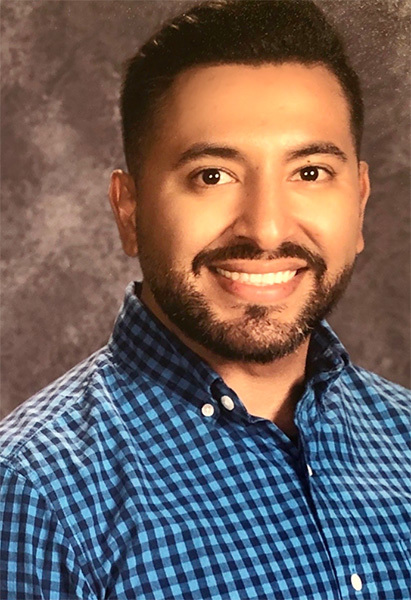The country has a problem: Young teachers are leaving the profession at alarming rates. Nearly half of all new teachers leave within five years, a rate higher than even police officers, research finds. This comes at a time when the workforce has never been younger, which means fewer mentors and supports to help new teachers find their feet.
When teachers are getting their credentials, said Rudy Rabara, a 5th-grade teacher in Sangar, California, “they make everything sound like butterflies and rainbows. But once you’re in the classroom, the support is often not there. You’re left in the dark, trying to fend for yourself,” he said. Rabara has been on the job for just over two years at Jefferson Elementary outside of Fresno.
It is an understanding of the isolation that new teachers can feel that spurred the National Writing Project (NWP), with support from the Panda Cares Foundation, to establish the Panda New Teacher Fellowship program to support early-career teachers like Rabara working in economically poor schools.
Writing, it turns out, can help.

Rabara and four other elementary teachers—all in their first years of teaching—meet virtually twice a month with mentors and experienced colleagues from their local Writing Project site, the San Joaquin Valley Writing Project (SJVWP), while also meeting monthly with 80 other early-career elementary school teachers from seven states around the country. Together they learn how to incorporate writing into the daily classroom, whatever the subject, and use it to help students make new connections.
“Writing can build a rapport with students and create a safe environment for them,” said program leader Marci Haas, associate director for elementary teachers at SJVWP. “When you write, you share yourself, you take a risk,” she said.
Writing can also help teachers build confidence. Part of the mentoring process is to show new teachers techniques to incorporate writing into their classrooms and that often means they must overcome their own fear of writing.
“Writing has been my downfall,” said Rabara. He viewed writing as a punishment, he said. But as he began to do the fast writing exercises at the beginning of each session, he discovered the power that writing can have. He often wrote about his frustrations, which he said helped him clarify what he was feeling and why. Writing as a group, he said, also made him realize that he was not alone in the process.
“When you meet different people, you start talking, you ask them what they do, you share ideas. It’s a big help,” he said.
What has really changed his mind about writing, however, is the impact on his students. When he reads his students’ journals he gains insights into their lives that he’d never have. One student would constantly act out in class, he said, but after reading the student’s journal assignments, Rabara began to understand the need for attention, which helped him support the student better, he said.
“What I’ve noticed is I’ve seen my kids’ true personalities. Kids who use a mask to hide, I’m seeing the smile behind the mask. That helps me build a relationship,” he said.
Parents, too, become more involved. The teachers encourage students to ask their parents to tell them stories—about their life in Mexico or how they got their name, for example—which they can then write about. It’s an approach that puts a family’s assets first and foremost. Some parents aren’t certain they have the qualifications to teach their kids, Haas said, and this helps them see how they can help their children in and out of the classroom.
The fellowship teachers are planning family literacy nights to showcase the many family stories and culture. Ultimately, said Rabara, the students will create and publish a book with all their interviews along with photos and memorabilia.
“We want them to find the beauty in their culture so they don’t become insecure,” Rabara said.
It’s a positive way to engage parents, Haas said. Rather than always going to parents with something bad that has happened, this approach shows the parents that they’re part of a team supporting their children, she said.
“To be honest,” said Rabara, “it changed my mindset. As a new teacher I was afraid to teach writing because I didn’t know how to teach writing. But with this program, I’ve learned new strategies, met new people, and shared ideas.”
All together the program will create a network of diverse local Writing Project sites in seven states, resulting in a networked professional development community for approximately 100 early-career grade K-5 teachers.
“This is a vital time to make sure that all teachers get the support they need to best support the families and communities they serve,” said Elyse Eidman-Aadahl, NWP executive director. The Panda Cares New Teacher Fellowship Program is helping to do that.
